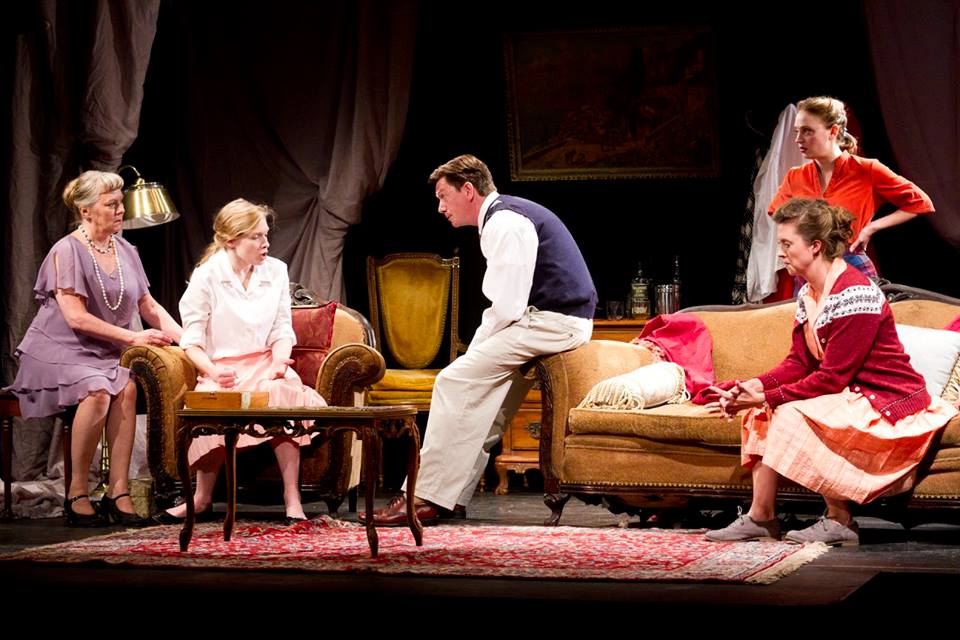
This season, EgoPo Classic Theater continues its foray into classics of American drama with a focus on female playwrights. It’s a needed focus, and their choice for the first play is logical: Lillian Hellman’s THE CHILDREN’S HOUR. It’s a play that had its scandalous premiere in 1934, getting banned in several cities for dealing with a homosexual theme, and it holds its place in theater history even if its timelessness is questionable.
Karen (Jenna Horton) and Martha (Emilie Krause) have worked relentlessly for eight years to turn their girls’ school into a profitable enterprise. Right at the eve of their success, one of their students, the spoiled and malicious Mary (Maggie Johnson), starts a rumor that threatens to ruin everything. Stuck in the middle is Karen’s fiancé Joe (Keith J. Conallen), who is related to Mary and Mary’s grandmother Mrs. Tilford (Cheryl Williams), whose indulgence has allowed her grandchild to grow worse and worse.
Everyone in director Adrienne Mackey’s cast does a wonderful job. Maggie Johnson’s portrayal of Mary as a perfect little villain is particularly chilling. Jenna Horton and Emilie Krause beautifully capture characters of dignity whose story turns heartbreaking as the dreams they worked so hard for begin to fall apart. Mary Lee Bednarek deliciously portrays the childish selfishness of Mrs. Mortar, Martha’s actress aunt. Keith J. Conallen is as earnest and respectable as a man can be, and the rest of the cast is just as solid.
But these superb acting performances come in a hopelessly dated play with a predictable plot. It’s provocative to think how people still experience similar shame, despair, and bullying (who are they in 2015?). But EgoPo’s production seems content to be a historical anecdote.
Despite Horton and Krause’s efforts, it’s hard to care about two women we don’t really get to know. Karen and Martha are hardworking school teachers, but that’s really all we find out about them. They are classic innocent victims of a malevolent antagonist, the one-dimensionally villainous Mary, who is presented as something between a plot device and a moral lesson on the dangers of spoiling children.
Designer Marketa Fantova has built a beautifully functioning set that works on many levels and creates a very appropriate sense of two worlds apart from each other. In fact, most everything about this production is well done, but EgoPo can’t quite find a way to make Hellman’s story emotionally engaging and contemporary. [The Latvian Society, 531 N. 7th Street] October 9-25, 2015; egopo.org.
